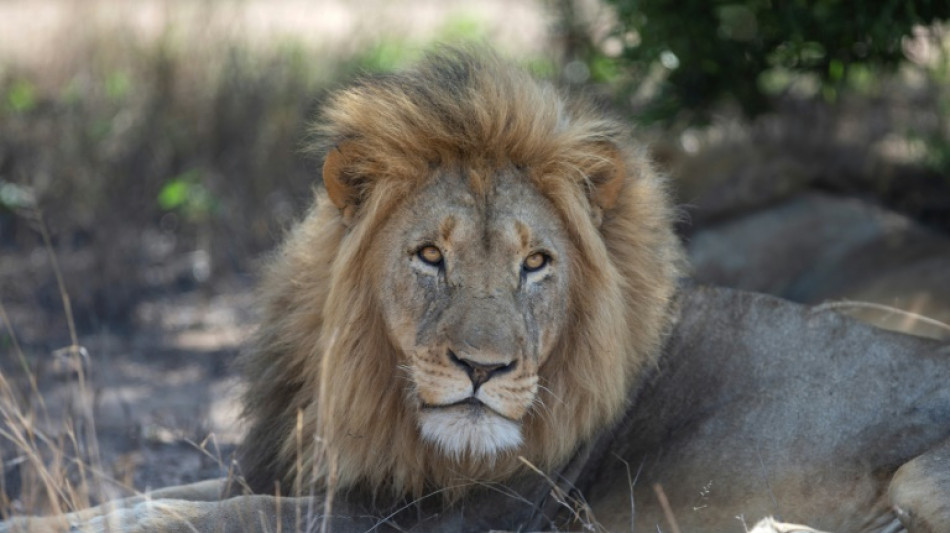
-
 Sequins and snow: Eva Adamczykova makes Olympic return
Sequins and snow: Eva Adamczykova makes Olympic return
-
Vonn set for Olympic medal bid after successful downhill training

-
 Shepherd takes hat-trick as West Indies beat Scotland in T20 World Cup
Shepherd takes hat-trick as West Indies beat Scotland in T20 World Cup
-
Sausages will sell after thrill-seeker Von Allmen wins Olympic downhill

-
 Swiss racer Von Allmen wins first gold of Winter Olympics
Swiss racer Von Allmen wins first gold of Winter Olympics
-
'Wake up': Mum sparks comeback after scare for freeski star Gu

-
 Von Allmen wins men's Olympic downhill gold, first of Games
Von Allmen wins men's Olympic downhill gold, first of Games
-
First medals up for grabs at Winter Olympics

-
 Afghanistan captain Khan harbours dream of playing in Kabul
Afghanistan captain Khan harbours dream of playing in Kabul
-
Lindsey Vonn completes second Winter Olympics downhill training run

-
 Freeski star Gu survives major scare in Olympic slopestyle
Freeski star Gu survives major scare in Olympic slopestyle
-
Iran FM looks to more nuclear talks, but warns US

-
 Hetmyer's six-hitting steers West Indies to 182-5 against Scotland
Hetmyer's six-hitting steers West Indies to 182-5 against Scotland
-
After boos for Vance, IOC says it hopes for 'fair play'

-
 Thousands gather as Pakistan buries victims of mosque suicide attack
Thousands gather as Pakistan buries victims of mosque suicide attack
-
Lindsey Vonn completes second downhill training session

-
 US pressing Ukraine and Russia to end war by June, Zelensky says
US pressing Ukraine and Russia to end war by June, Zelensky says
-
Faheem blitz sees Pakistan avoid Netherlands shock at T20 World Cup

-
 Takaichi talks tough on immigration on eve of vote
Takaichi talks tough on immigration on eve of vote
-
England's Salt passed fit for T20 World Cup opener

-
 Spain, Portugal brace for fresh storm after flood deaths
Spain, Portugal brace for fresh storm after flood deaths
-
Pakistan bowl out Netherlands for 147 in T20 World Cup opener

-
 Pushed to margins, women vanish from Bangladesh's political arena
Pushed to margins, women vanish from Bangladesh's political arena
-
Crypto firm accidentally sends $40 bn in bitcoin to users

-
 Pistons end Knicks' NBA winning streak, Celtics edge Heat
Pistons end Knicks' NBA winning streak, Celtics edge Heat
-
Funerals for victims of suicide blast at Islamabad mosque that killed at least 31

-
 A tale of two villages: Cambodians lament Thailand's border gains
A tale of two villages: Cambodians lament Thailand's border gains
-
Police identify suspect in disappearance of Australian boy

-
 Cuba adopts urgent measures to address energy crisis: minister
Cuba adopts urgent measures to address energy crisis: minister
-
Not-so-American football: the Super Bowl's overseas stars

-
 Trump says US talks with Iran 'very good,' more negotiations expected
Trump says US talks with Iran 'very good,' more negotiations expected
-
Trump administration re-approves twice-banned pesticide

-
 Hisatsune leads Matsuyama at Phoenix Open as Scheffler makes cut
Hisatsune leads Matsuyama at Phoenix Open as Scheffler makes cut
-
Beyond the QBs: 5 Super Bowl players to watch

-
 Grass v artificial turf: Super Bowl players speak out
Grass v artificial turf: Super Bowl players speak out
-
Police warn Sydney protesters ahead of Israeli president's visit

-
 Simi Khanna Launches Simi Beauty SK: A Natural Skincare Line Blending Luxury, Wellness, and Purpose
Simi Khanna Launches Simi Beauty SK: A Natural Skincare Line Blending Luxury, Wellness, and Purpose
-
Best Gold IRA Companies February 2026 Announced (Top Gold-backed IRA Companies Revealed)

-
 Bolivia wants closer US ties, without alienating China: minister
Bolivia wants closer US ties, without alienating China: minister
-
Ex-MLB outfielder Puig guilty in federal sports betting case

-
 Milan-Cortina Winter Olympics open with dazzling ceremony
Milan-Cortina Winter Olympics open with dazzling ceremony
-
China overturns death sentence for Canadian in drug case

-
 Trump reinstates commercial fishing in protected Atlantic waters
Trump reinstates commercial fishing in protected Atlantic waters
-
Man Utd can't rush manager choice: Carrick

-
 Leeds boost survival bid with win over relegation rivals Forest
Leeds boost survival bid with win over relegation rivals Forest
-
Stars, Clydesdales and an AI beef jostle for Super Bowl ad glory

-
 Dow surges above 50,000 for first time as US stocks regain mojo
Dow surges above 50,000 for first time as US stocks regain mojo
-
Freeski star Gu says injuries hit confidence as she targets Olympic treble

-
 UK police search properties in Mandelson probe
UK police search properties in Mandelson probe
-
Bompastor extends contract as Chelsea Women's boss despite slump


'Love hormone' oxytocin turns fierce lions into kittens
Here kitty kitty...
Scientists who spent years spraying oxytocin up the noses of lions found the big cats became much friendlier with their neighbors and less prone to roaring at strangers when dosed up on the so-called "love hormone."
The results, published in the journal iScience on Wednesday, could have major benefits for conservation efforts as unfamiliar prides are increasingly forced by urban sprawl to live together in reservations.
"I've always loved lions," neuroscientist and first author Jessica Burkhart told AFP, explaining she became involved in the research because she had grown tired of examining the animals' brains in the lab and wanted to study them in real life.
Cats in general have a reputation for independence, but lions buck that trend -- living socially in prides as they win and defend prized territories on the African savanna.
"If you think about male lions, for example they will leave the pride when they're a couple of years old and they will meet up with other male lions they don't know and they're not related to, and they will form lifelong bonds," said Burkhart.
These types of behaviors indicated that lions -- unlike solitary cheetahs or leopards -- are biologically programmed to be social in some situations, making them an interesting test species for oxytocin intervention.
- 'Cuddle chemical' -
Across mammals, oxytocin is the chief molecule strengthening social bonds.
Sometimes called the "cuddle chemical," it surges inside the brain of a mother when she gazes into her newborn's eyes, promoting feelings of well-being and happiness -- while causing the baby to want to latch on to its mother's breast.
Similar effects have been documented in other species, as well as between dogs and their human owners.
Therapists even suggest couples experiencing problems can benefit from increased eye contact, which releases oxytocin.
Working on a wildlife reserve in Dinokeng, South Africa in the summers of 2018 and 2019, Burkhart and colleagues from the University of Minnesota ran a test using hunks of raw meat to lure lions to a fence.
The hormone had to be sprayed directly up the nose, using a device that looks like an antique perfume bottle, so it would travel straight to the brain.
After the treatment, the 23 lions given oxytocin became more tolerant of lions in their space. This was measured by seeing how close a lion who has possession of a desired object, in this case a toy, will let others approach it.
"After the lions were treated with oxytocin, and we gave them their favorite pumpkin toy to play with, we saw the average distance between them drop from about seven meters with no treatment to about 3.5 meters after oxytocin was administered," said Burkhart.
Lions didn't roar back when played recorded roars of unfamiliar intruders -- unlike those in a control group who either weren't sprayed with anything, or were sprayed with a saline solution.
- Conservation benefits -
The lowered hostility towards strangers was a particularly encouraging finding, said Burkhart, because oxytocin is known to have a dark side in humans: while it promotes positive feelings to those within a group, it can increase rivalry against outsiders.
The treatment could be helpful in a number of scenarios, she said.
First, it could help bond unfamiliar lions rescued from abusive situations, such as from circuses or zoos in war zones, who are then placed in sanctuaries.
Second, as cities in Africa sprawl and encroach upon lions' territory, conservationists are forced to transport the cats to private reserves where unfamiliar prides are housed together -- and oxytocin might help prevent conflict.
It could also help relocations to the wild, helping lions "become more inclined to their new social environment so they're more curious and less fearful, leading to more successful bonding," said Burkhart.
One fear is that unscrupulous operators -- in the vein of infamous "Tiger King" Joe Exotic -- might try to use the chemical to help run zoos that promote cub petting, heavily criticized by animal welfare advocates.
"The truth is people are corrupt...but hopefully in this case it'll help more than it'll ever hurt," said Burkhart.
A.Mahlangu--AMWN


